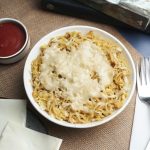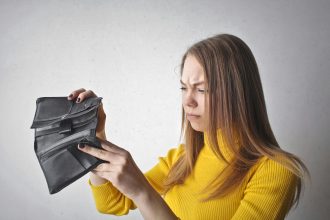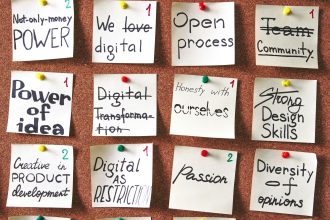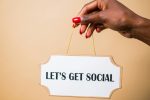Would You Consider Buying a Non-Alcoholic Drink That Resembles Alcohol?
I’ve been toying with this concept for a while and would love to hear your honest thoughts.
Many people feel the pressure to drink in social situations. If you choose not to drink, it often attracts attention, prompts questions, and can even lead to being treated differently. Although there are alcohol-free alternatives available, they’re usually clearly labeled, making it hard to blend in.
What if there was a beverage that mimicked the look of beer, wine, or spirits—same packaging and labels—but was completely alcohol-free? The idea isn’t to deceive anyone, but rather to provide those who prefer not to drink a simple way to fit in without the need for constant explanations.
While non-alcoholic drinks do exist, their obvious labeling can undermine the purpose for those trying to avoid social pressure. This concept aims to create a product that looks just like the real deal, allowing individuals to enjoy social outings without the awkward conversations.
Do you think there would be genuine interest in such a product? Or would people still prefer regular alcohol-free options? I’m eager to hear your thoughts, especially if you’ve faced similar social pressures yourself.










3 Comments
I think your idea has a lot of merit! Many people do feel uncomfortable in social situations where they either want to abstain from alcohol for personal or health reasons but still want to fit in. Your concept of a non-alcoholic drink that looks and feels like the real thing could definitely help to alleviate some of that pressure.
Aesthetics play a huge role in socializing, and if a drink can mimic the appearance and branding of typical alcoholic beverages, it might allow people to enjoy the social experience without the anxiety of explaining their choices. I’ve seen friends face awkward moments when opting for non-alcoholic options, so I see the value in providing something that allows them to blend in comfortably.
However, I’d be curious about how potential customers would react to the idea of “fake” alcohol. Some might appreciate the convenience and support it gives them, while others might feel uncomfortable with the deception aspect, even if it’s not intended to mislead. It might also be useful to consider how you could position this drink in a way that emphasizes choice and inclusion rather than concealment.
Overall, I think there could be a significant market for this type of product, especially as more people are becoming health-conscious and looking for options that allow them to participate in social settings without feeling marginalized. It would be interesting to conduct surveys or focus groups to see how people would respond to this idea!
What a thought-provoking post! The idea of a non-alcoholic drink that mimics the appearance of traditional alcoholic beverages is indeed intriguing. It speaks to the complex dynamics of social acceptance and the pressures individuals face in social settings.
One aspect to consider is the potential market demographic. Many people are actively seeking non-alcoholic alternatives, not just for health reasons but also to foster a more inclusive social atmosphere. A product like this could particularly resonate with those in recovery or individuals who simply choose to abstain for personal reasons.
Moreover, there’s a growing trend around mindful drinking and the rise of “sober curious” communities, which suggests that the demand for aesthetically appealing non-alcoholic options is on the rise. By challenging the stigma associated with not drinking alcohol, a visually appealing alternative could promote a culture of choice rather than exclusion.
However, there are potential ethical considerations as well. While masking the non-alcoholic nature might help individuals feel more included, it’s essential to ensure that consumers are fully aware of what they are purchasing. Transparency should remain a priority, ensuring that no one feels misled.
Overall, this concept could very well bridge a gap in the market, and if done thoughtfully, it could shift societal norms around drinking without compromising personal choice or honesty. I’m curious to see how this evolves!
This is a fascinating concept that taps into the social and emotional nuances of drinking culture. From a psychological perspective, the desire to blend in and avoid social scrutiny is a common experience, especially in environments where drinking is seen as a social norm. Offering a non-alcoholic beverage that closely resembles its alcoholic counterpart could significantly ease social anxiety for those who choose not to drink or are in recovery. However, it also raises questions about authenticity and the social implications of perception.
While such a product might provide a sense of inclusion, it’s important to consider the broader implications—could it inadvertently reinforce the association between alcohol and social bonding? On the other hand, it could serve as a helpful tool for fostering more inclusive social settings where everyone feels comfortable, regardless of their drinking choices. Ultimately, market acceptance would depend on consumer attitudes towards authenticity, transparency, and social identity. Exploring how such a product could be positioned—perhaps emphasizing the celebration of choice and individual comfort—may be key to its success.